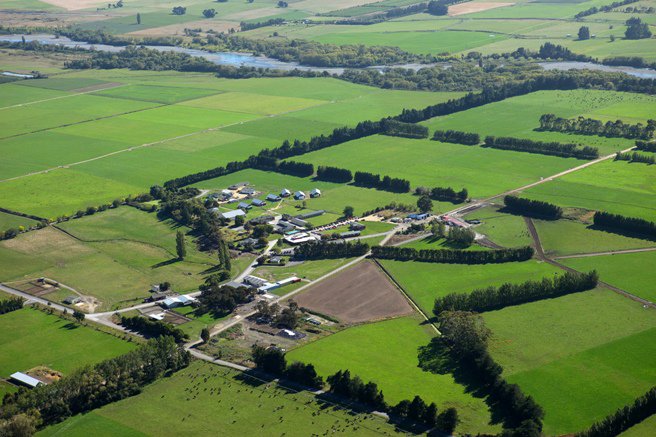Land at the former Taratahi farm training centre where thousands of young farmers learnt their craft could be sold to repay the debt that caused the agricultural training centre into liquidation in 2018.
A High Court judgement has determined that the 1969 Wairarapa Cadet Training Farm Act, which vested the 294ha with the Taratahi Agricultural Training Centre Trust Board, allows the land to be sold with the approval of the Agriculture Minister.
“Approval could be given to a sale by the liquidators, if that sale is necessary to meet the Trust’s lawfully incurred debts (debts incurred in the lawful and trust consistent performance of the board’s statutory functions).”
Justice Ellis says a decision to sell is likely to require wider consideration by the minister.
The receivers for the Taratahi Agricultural Training Centre sought the High Court ruling, but descendants of the original donors, of which Phillida Perry was the first respondent, want the land retained for education, the purpose for which it was gifted.
They submitted the legislation does not grant power to the trust to sell the land and if it is to be disposed of, then it should be offered back to the descendants of donors.
After WWI, Sir William and Lady Margaret Perry donated 131ha to help returning servicemen re-establish themselves and promote modern farming practices in the Wairarapa.
At the same time a neighbouring 163ha was bought off Mrs Ivelenah Rayner with funds raised from the Wairarapa community, which lead to the establishment of the Wairarapa Cadet Training Farm.
The community also donated livestock while the Government funded buildings, fences and equipment.
Up to 1969, the farm was controlled and managed by a committee appointed by the Minister of Agriculture, but the passing in 1969 of the Wairarapa Cadet Training Farm Act vested the farm and land in a trust board.
That change was needed to give governance a more certain legal footing and to provide easier access to funding.
Financial losses in 2017 and 2018, a forecast further loss in 2019 on the back of lower enrolments, required the repayment of Tertiary Education Commission funds which culminated in the board being forced into liquidation in December 2018.
Justice Ellis notes that at the time of liquidation, the board owed $11.9m and a further $12.5m to the Westpac.
The amount owed to Westpac has been reduced to $6.6m, but liquidators say the land is the last unrealised asset of value.
“If the Minister of Agriculture consents … the liquidators intend to sell the land and use the proceeds to pay creditors and the costs associated with the liquidation, in accordance with the Companies Act.”
Justice Ellis notes the Attorney General supports the liquidator’s position but noted the minister is committed to finding options for retaining agricultural education at the training centre.
Justice Ellis concluded the gifting of land in 1918 was for charitable educational purposes as was the donor’s intent.
“It was not to gift the land to the Crown to use however it wished; there were detailed discussions of the use to which the land was to be put.
“I have no doubt that it would not have been transferred but for the Crown’s agreement to use the land (and the stock) as the core of the training farm enterprise envisioned by the donors.”
Donors’ families urge Minister to choose training
Descendants of those who gifted land for the Taratahi Agricultural Training Centre fear a High Court decision allowing the farm to be sold violates property rights.
Dan Riddiford says descendants want the land retained for training, which the High Court acknowledged was the reason it was originally gifted.
“The issue will ultimately come down to property rights,” he says.
If the Government decides to sell the Taratahi farm, which is owned by a trust, he says it will be ignoring the rights of property owners.
“Whether the land is in somebody’s name or whether it’s in a trust with trustees, it’s the same thing. It’s private land,” he says.
Such a decision will also be against the wishes of the original donors and their descendants.
They want the farm to remain in the Wairarapa for agricultural training, but that appears to be at odds with what Wellington bureaucrats are proposing.
Agriculture Minister Damian O’Connor says as he is working through the High Court decision and it would be inappropriate for him to comment on any future decision he may make.
“As I have said in the past, Taratahi is an important part of New Zealand’s agricultural education history.
“It is a legacy that I am committed to continuing and look forward to moving forward in a way that secures sustainable agricultural education at Taratahi now and into the future.”










